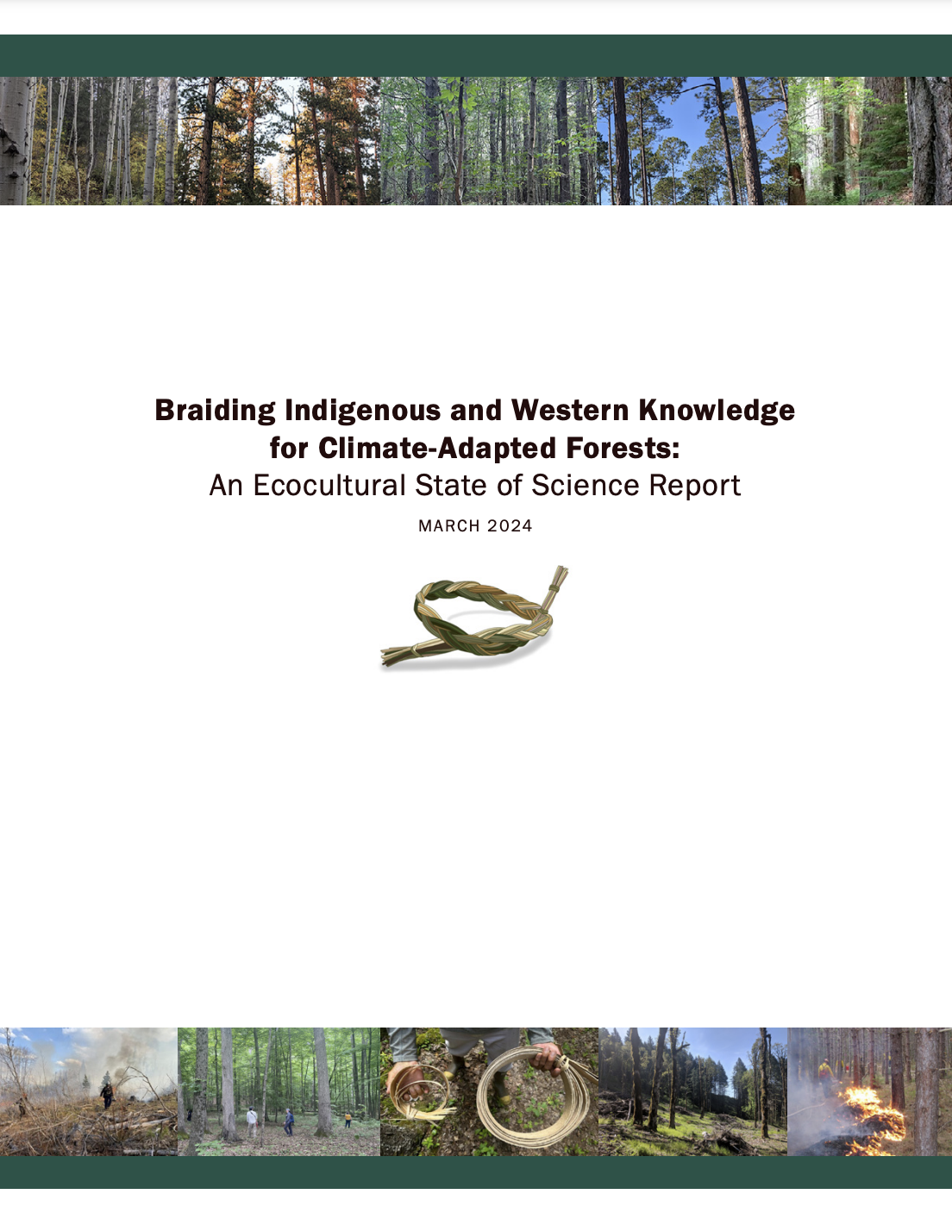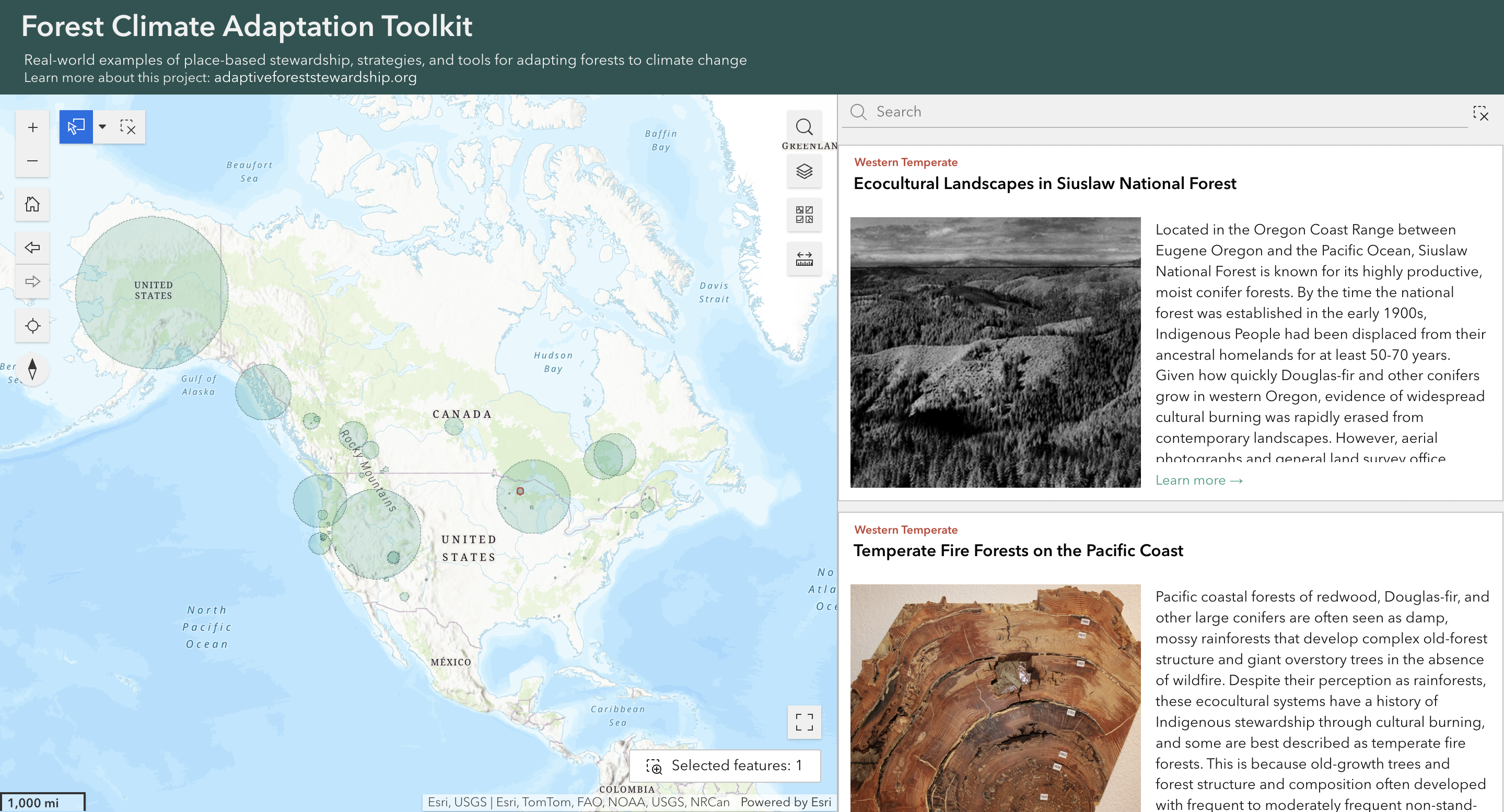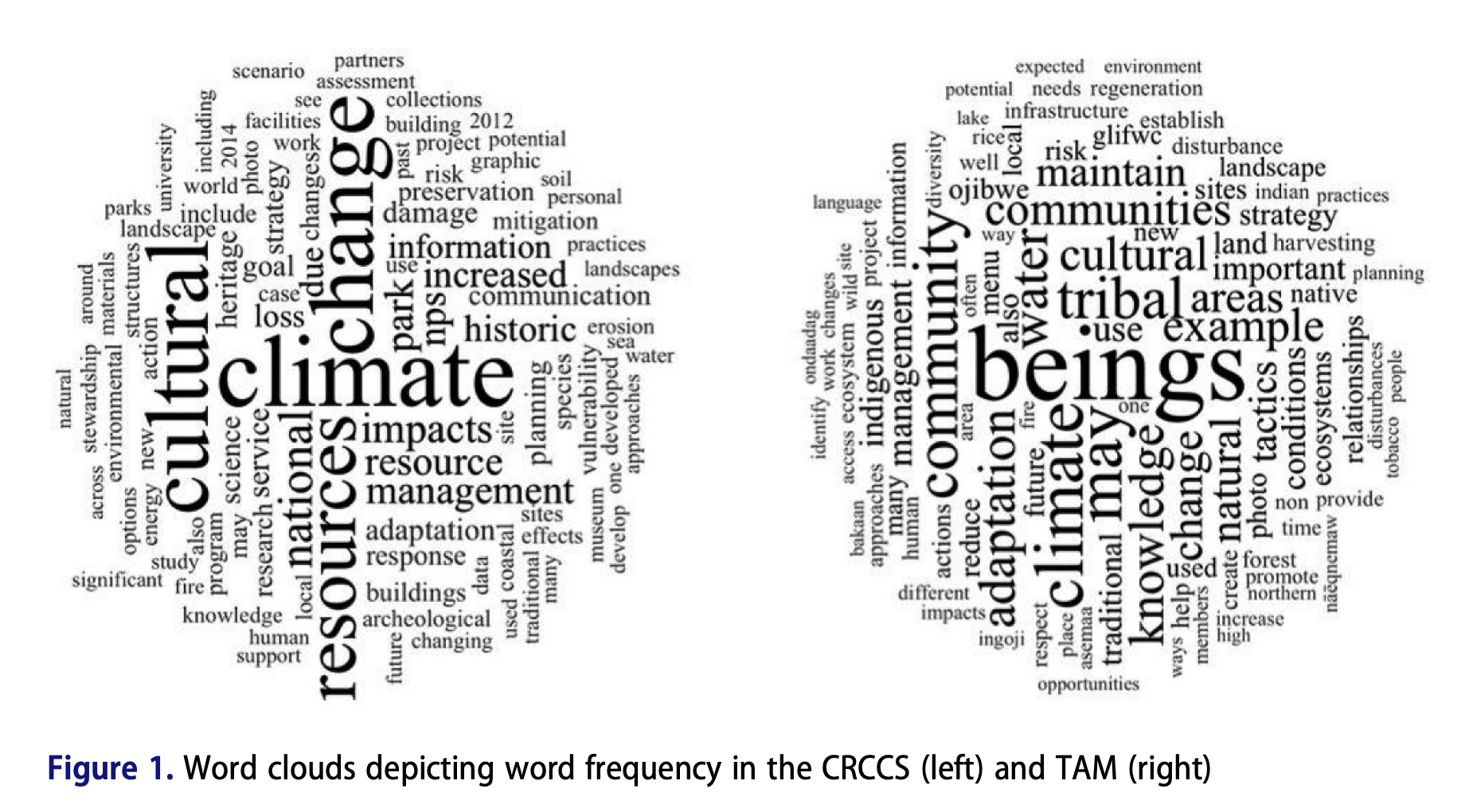Braiding Indigenous and Western Knowledge for Climate-Adapted Forests: An Ecocultural State of Science Report

Posted by
CAKE TeamPublished
Abstract
North American forests are experiencing unprecedented challenges due to extreme wildfires, pathogen and insect outbreaks, heat stress, drought, rapid development, and invasive species. Exacerbated by climate change, these threats collectively diminish cultural values, economic values, and habitat. Contemporary and historical management, including a long legacy of fire exclusion in many sites, are root causes of current forest conditions.
Our ecocultural state-of-knowledge report brings together Indigenous Knowledge (IK) and Western Science (WS) to support climate and wildfire adaptation strategies for forest landscapes. This report builds on federal directives to respectfully and intentionally braid IK and WS knowledge systems in a Two-Eyed Seeing approach that informs climate- and wildfire adaptation strategies to conserve our public forests. Our writing team’s cultural, geographic, and disciplinary diversity enables us to provide guidance that can enhance forest resilience and sustainability for future generations. We provide five recommendations to address current challenges to our nation’s forests.
Indigenous Peoples stewarded lands throughout North America (NA) for millennia. Forest landscapes maintained with continuous active burning contained diverse, multi-aged communities, including coniferous and hardwood forests and shifting mosaics of nonforests, such as meadows, shrublands, riparian areas, wetlands, and sparsely treed woodlands. Indigenous stewardship based on reciprocity1 shaped these ecological and cultural (hereinafter, ecocultural) systems and the values they provided. Today’s forests continue to require respectful, proactive stewardship that fosters economic and ecological values such as clean water, fertile soil, food, material resources, and stored carbon.
Many forest landscapes face escalating damage and loss due to increasingly frequent, severe, and extensive wildfires, and pathogen and insect outbreaks. These threats warrant changes in forest stewardship and related policy. Historical and contemporary forest management unintentionally contributed to these conditions by focusing on economic benefit from forest products and short-term solutions (e.g., fire suppression, disaster response) at the expense of proactive investments in management. Because of conservation strategies such as sustained-yield policies, many US forests currently store more carbon than in the 19th century. However, without proactive stewardship, a substantial portion of that carbon is being suddenly reduced under climate change and wildfires.
Compounding losses call for braiding together diverse worldviews to create complementary changes to forest management that address the scale and urgency of current needs. Given widespread departures from historical conditions and anthropogenic climate change, we cannot restore conditions to mirror the past. Instead, we can reinstate ecocultural practices that restore historical forest dynamics and climate resilience. Braiding IK and WS to inform an adaptive brand of stewardship offers the best chance of conserving forest landscapes for future generations, while addressing ongoing threats and losses.
As we consider the importance of future forests, we acknowledge the influential past, present, and future role of Indigenous Peoples and their IK in shaping forest ecosystems. We recognize that a vast body of WS supports restoring climate-resilient forest structure and processes, including understory composition and biodiversity. Where disturbances were historically frequent, as in many seasonally dry NA forests, cultural burning, prescribed fire, forest thinning, meadow, woodland, and hardwood forest restoration, and fuel reduction can support climate adaptation.
See the associated mapping tool.



